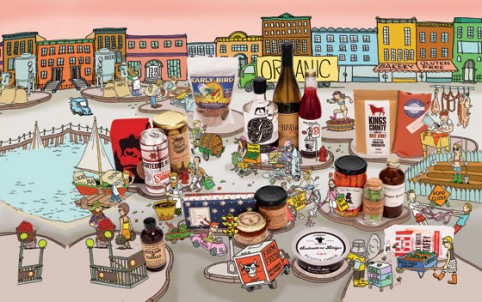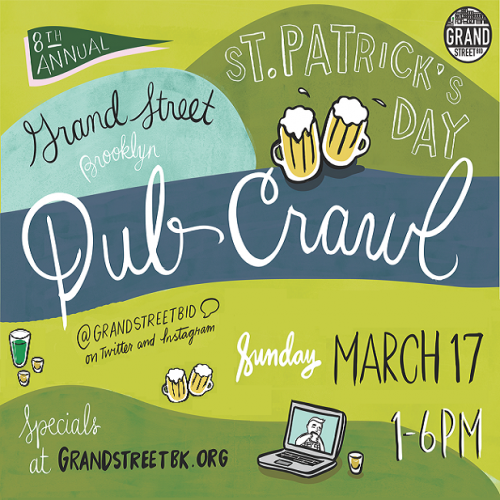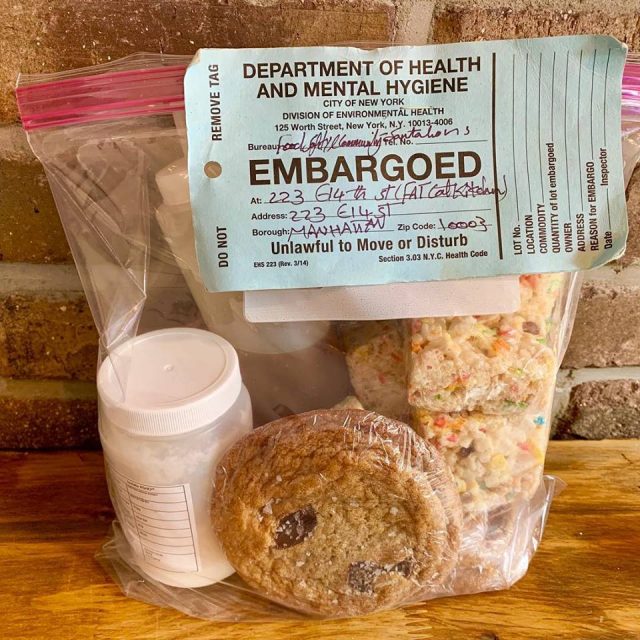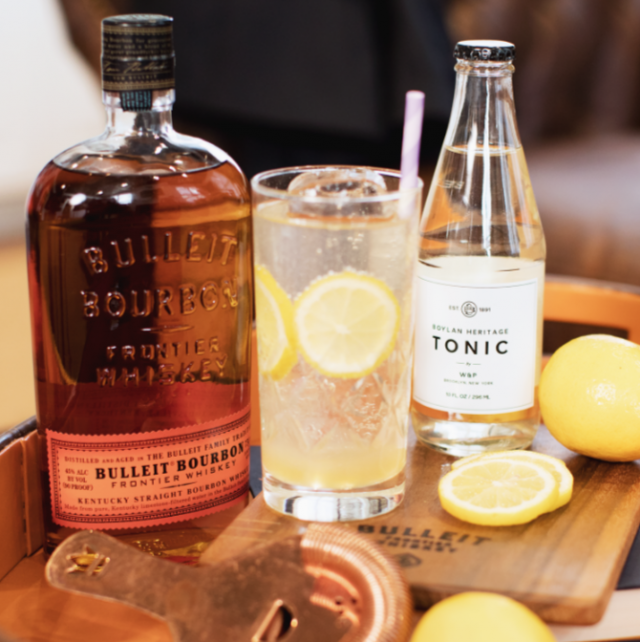
I was going to try to summarize this whole article in New York Magazine this week called “The Twee Party,” asking if Brooklyn’s artisanal movement is a step forward for food or a sign of the apocalypse, but then I read sentences like the following and I had a twee allergy overload so intense that I am presently trying to declog sinuses of cross-stitched granola bars and locally brewed marmalade-flavored session mayonnaise, so I had to stop reading. Exhibit A): “There is the twee comedy of eating Brooklynishly, and then there’s the twee sincerity of producing Brooklynishly: wide-eyed entrepreneurs slogging through the nitty-gritty of business-building. The word artisan, shopworn as it may be, is usually not, actually, an affectation.” And exhibit B): “While the carefully considered choice of what jar to put your homemade jam in might seem like design-junkie hairsplitting, economic-development types hope that a borough’s worth of would-be jelly moguls could actually add up to something more.”
With this girl still fresh in our memories, it seems we’re reaching a zenith (or nadir) of our tolerance for cutesy wutesy, twee and precious things in Brooklyn. So tell us your thoughts on twee: like it or spike it? Important note: We at Brokelyn don’t actually encourage hate in any form, just healthy skepticism, please. And really; is good food doing anyone any harm? I will say that to those of us who point our diets in a different direction, all you artisanal-obsessed foodies sweating over what the thread count was on the sheets your dead cow slept on look like hilarious fetishists you seen on HBO at 4am to us.
8 Comments
Leave a Reply




I make weekly trips into New Jersey because I can’t afford half the shit in this damn borough. I literally am smuggling food over state lines to cut costs.
Oh county o’kings, it stings.
But is it really worth having to go to New Jersey, Blayze?
And why is everything called “twee” nowadays?
Rabble, rabble!
Blayze, where do you shop in NJ?
The problem is the word “artisanal” has become diluted. It used to denote craftsmanship built up over a lifetime, usually through an apprenticeship program. Now anyone with seed capital can set up shop, memorize a recipe from Wikipedia, and slap an artisanal label on it and charge twice as much.
Not to mention this: http://gothamist.com/2011/10/25/everything_ever_is_being_called_art.php
Big words from a guy in the food-based version of Hezbollah.
yeah, can the next like it or spike it topic be vegans?
but yeah, spike twee.